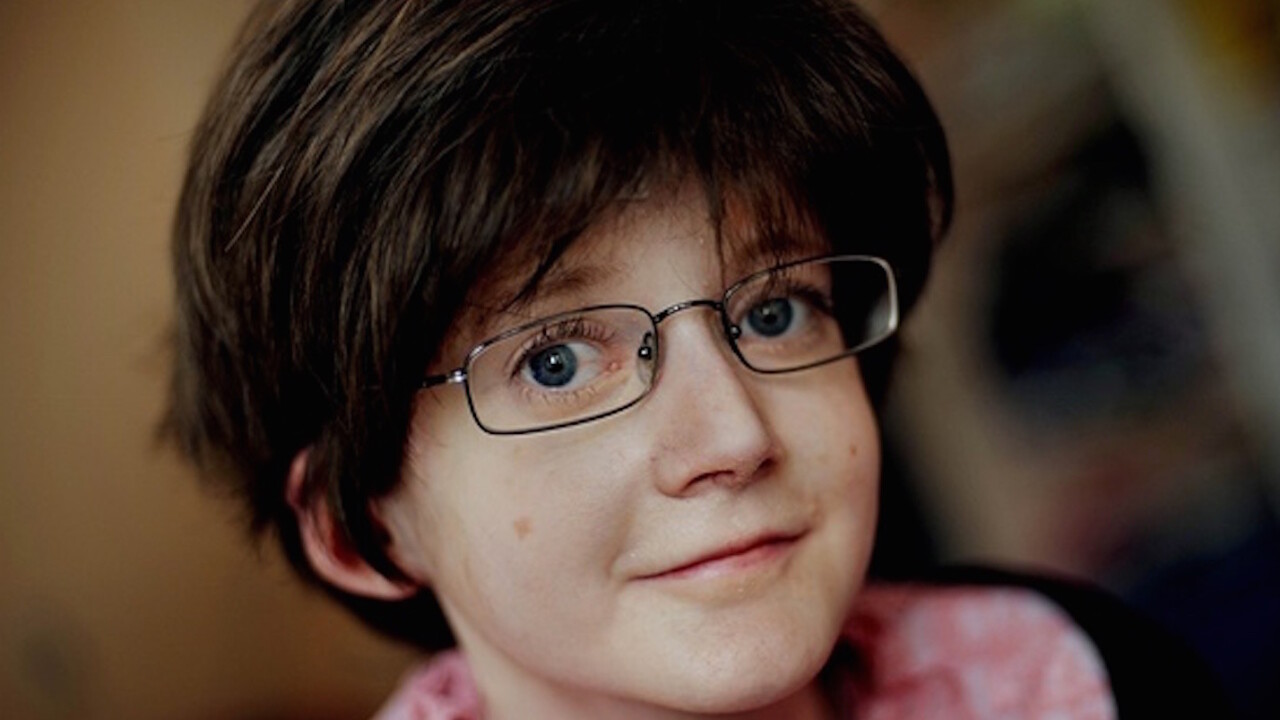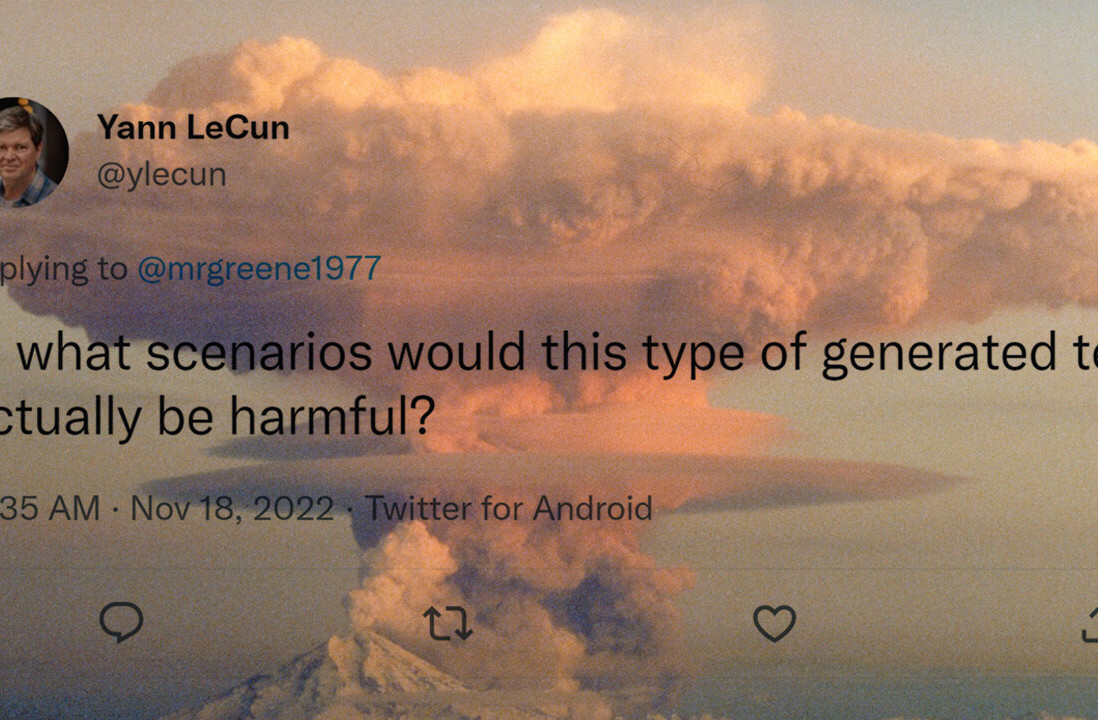
There was a study released this week from the Pew Research Center, which found that the internet has improved friendship for teenagers.
The findings are right. They just don’t go far enough. The Web improves friendships for everyone. I could have told you that based on anecdotes alone. Here’s a story that explains why…
The Daily Mail must hate me. I have (foreign) carers making my sandwiches.
— LucyTweeting (@LucyTweeting) November 9, 2014
Earlier this year, my friend, the journalist, campaigner and all-round wonderful human Lucy Glennon died. She was 29-years-old. She had a relatively rare condition called epidermolysis bullosa (EB). I obviously can’t describe it as well as she did in an article for The Guardian:
There is a one in 17,000 chance of being born with epidermolysis bullosa. That statistic could make you feel special or unique, but it makes me feel a bit unlucky, because it is one of the most painful disabilities to have…Imagine a constant pain all over – a pain you are used to because it is all you have known, and you have it with you all the time, kind of like a friend.
EB puts severe restrictions on the way someone with it can interact with the world. It makes taking in nourishment difficult, it means you can’t take part in most physical interaction, can’t play games and must spend your childhood being shielded from the risks of the playground:
Rough physical contact when I was a child was always a hazard, but school days were fun in other ways. Going into the “big yard” at primary school one lunch time, I got a football in the face, which made me phobic of all balls.
As sports were a no-no, I read, used Play-Doh (which improves the dexterity of young EB sufferers) and was allocated a smaller play yard where ball games were banned and friends understood that they needed to be careful with me. But truly, my main passion started in the classroom when we got our first Apple Macintosh computer. I had never seen or used a computer before, but the teachers let me have a go, and I fell in love with technology.
At #BGCCharityDay representing the Sohana Research Fund @SohanaResearchF. Met @jonsnowC4 who supports I CAN. pic.twitter.com/61Ze8wOFTC
— LucyTweeting (@LucyTweeting) September 11, 2014
I knew none of this when I first met Lucy. Because I first met her as Chintzybling, one of the funniest, frankest, most joyful writers on a blogging community called 20Six, where I shipped up in my early-20s. I had just arrived in London, was lonely, and made a blog to post my fiction. Soon I started to make friends. One of them was Chintzy.
I got to knew Lucy was this funny, free person – not knowing that she was being careful only to write certain things at first, her family being worried enough about her studying in Sheffield, striking out from Rotherham where she grew up and establishing some independence in a world where doing that with EB is a titanic feat.
Her next move was an even more ambitious one. She moved to London, living alone with the help of carers. Some were amazing, others not so. All the time she blogged and chatted and shared pictures online. After a year or so of knowing each other virtually, we met at a 20Six meet up, where the faces behind so many of the names on the site became suddenly real.
Did anyone else see the doodle sharing thing and think: “I’d send knob drawings hur hur!” #AppleWatch
— LucyTweeting (@LucyTweeting) September 9, 2014
One of the other people I met there IRL for the first time – Floaty Katja aka Kate – is still a good friend. She’s getting married soon. I once lived in her flat for six months while she was off teaching English abroad, the job that finally led to her to her fiancé. Another, who I won’t name here, became my girlfriend but eventually ended up not talking to me again because I finished things clumsily, as men in their early-twenties are so capable of doing.
But out of all the friends and more I made through the blogging site, Lucy was my most enduring friend and the one for whom the power of the internet did so much. I didn’t come into contact with her disability first. I met her online as almost pure energy, a fan of kitschy stuff and cute dogs, of finding a great restaurant, or brilliantly tasty thing from the supermarket that cut through her regime of fentanyl lollies.
The internet was so important for our friendship. It kept it alive when I lived away – fleeing to near Manchester after my disastrously depressing stint at Q, the music magazine, or finally moving to Dublin, where I am now. Lucy and I kept up our correspondence the whole time – in instant message boxes on Gmail and Facebook, in public on Twitter and in occasional emails. But we were also friends in real life.
@brokenbottleboy I had a Firezza offer email earlier with free Peroni for this weekend only. Excellent timing.
— LucyTweeting (@LucyTweeting) May 26, 2012
I’d stay with her sometimes in London. Laying on the floor in the living room writing, while she watched the news in her bedroom or got some difficult and well-needed rest. We went out for walks around her neighbourhood, her spotting squirrels and shaking off the stares of passersby with a forbearance that I could never have managed. I tried to help out in whatever way I could. Our friendship was forged online, but it was strengthened in the ‘real’ world.
The story of brave, funny disability campaigner Lucy Glennon. http://t.co/f9l4fFBd1M pic.twitter.com/RSYakcGjfM
— Tim Lusher (@timlusher) February 18, 2015
I was notified that Lucy had died by a Twitter update. I was scrolling through the feed the day after my birthday, looking for stories to write here at The Next Web, and there it was, a message from one our mutual friends that something I knew would arrive sooner than it ever should, were the universe even remotely a fair or just place, had finally happened. She never made 30, but she achieved more and lived a richer life in 29 years than I have in 31 and counting.
This article is unforgivably late. it’s more than six months since Lucy was gone. Other friends, most of them people who started as faces online and became friends in real life, including her ever-wonderful companion Neil aka Cha0tic, who accompanied her on awesome trips, wrote brilliantly about her soon after it happened.
I do this for a living, but when it came to Lucy going, I didn’t know how to arrange the words. She meant more to me than a single blog post could express.
Nothing lovelier than a smiling dog RT @thedogist: Spitfire, Australian Cattle Dog, E 8th & Cooper Sq, New York, pic.twitter.com/tfPKYoaKCJ
— LucyTweeting (@LucyTweeting) June 13, 2014
She was a great writer, a brave journalist, a person of preternatural personal strength and humor. I pass a sign in Dublin often, it’s for a firm called ‘Glennons’, it makes me think of her every time. I called her that – “Glennon.”
Online, there are even more prompts – a funny picture of a dog, someone talking about Nandos or another unforgivable move by a UK government that has let disabled people down and introduced so much stress to her life– all of these things remind me of her daily.
Behind every policy decision is a person: Lucy Glennon: a person who stood up for & took responsibility for her life http://t.co/xd2khCoJVK
— Sue Wright FRSA ☯ (@firstintheQ) February 18, 2015
There are millions of these hidden stories on the Web, stories of how the internet has led to friendships that would never have occurred without it. The common narrative in the media is one of scary tales about people meeting up with online ‘strangers.’ From a connection on a now defunct blogging site to feverish IM chats to a meet up in a pub and finally to a friendship that changed my life – the Web is a wonderful thing.
Every now and then Facebook will tell me that I haven’t spoken to Lucy in a while, or I’ll find myself visiting her Twitter profile, hoping just hoping that somehow she’ll have said one more thing, popped back up to be so funny, so smart, so bloody Glennon that it’ll make me want to punch the air and cheer. I know that can’t happen, but you never really stop hoping.
I've seen @LucyTweeting being described as 'Magnificently Badass'. Here's a picture of her being just that. pic.twitter.com/LRekjrDnyd
— cha0tic (@cha0tic) January 29, 2015
In Terry Pratchett’s books, there’s this concept of ‘the clacks.’ It was introduced in ‘Going Postal’ as a system of communication towers. John Dearheart, the son of its inventor, is murdered and a piece of code is written – GNU John Dearheart – that echoes up and down the clacks line. ‘G’ means the message is passed on, ‘N’ that it is not logged, ‘U’ that it must be turned around at the end of the line.
The code leads Dearheart’s name to be repeated forever through the system. As Pratchett writes it: “A man is not dead while his name is still spoken.” The clacks carry GNU John Dearheart in the dead spaces.
In the spaces between every thing I write online, every time I try to be kinder than my nature, every time i try to find something fun in a world that can seem so wearying, there’s a message between the spaces – it reads ‘GNU Lucy Glennon’. Not truly gone while her name is still spoken. And it is, by all of us who met her online and were privileged to encounter that joy IRL.
Please read: Lucy’s writing
Please donate to: Debra – the EB charity
Image credit: Sarah Lee for the Guardian
Get the TNW newsletter
Get the most important tech news in your inbox each week.




